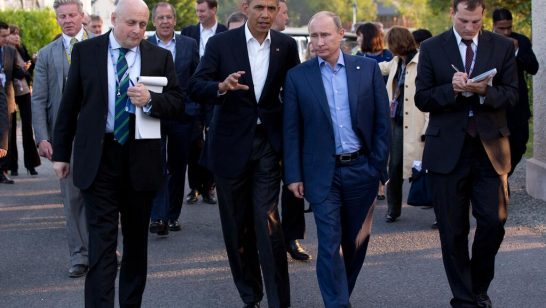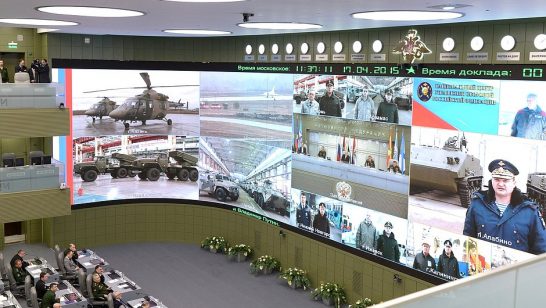
For the past two years the European Leadership Network (ELN) has encouraged debates on the differing interpretations of key concepts and norms in Russia-West relations to identify how they affect Euro-Atlantic security. To facilitate this work, ELN hosted two meetings tracing the crucial differences between western and Russian “competing narratives” to try to establish what common ground remains.
The first of these meetings took place in late 2015. It addressed a wide range of issues including respect for sovereignty and territorial integrity of states, the use of force and the principle of non-intervention and self-determination of peoples. The meeting concluded that policymakers should focus on devising the means and methods of managing the process of historical change currently underway in Europe.
To build on the insights and contributions of the first meeting, in June 2017 the ELN hosted a second workshop bringing together nearly 20 Russian and European policy analysts, scholars and OSCE officials for in-depth discussions on one of the key points of contention from the first meeting: the principle of non-intervention in the internal affairs of other states. The premise was to examine how to the principle was codified and how it has evolved with participants tracing how this affects the current Russia-West relationship.
This report reflects the main points from that discussion with recommendations on how to clarify and strengthen the non-intervention principle in the 21st century.
Recommendations
The goal of this second analytical meeting was to undertake over one of the most contested Helsinki principles, the non-intervention norm, and shed further light over how its current present application can be better understood and perhaps universalised across the OSCE space. The exchanges during the meeting highlighted the main differences in interpretation of the norm. Yet, they also allowed for the identification of common ground for bridging the diverging perspectives.
- One way of overcoming the current animosity and tension in the Russia-West relationship is to reinforce the concept of state sovereignty. Rearticulating that each state in the Euro-Atlantic space recognises this inherent right and acknowledges the equality with the rest could be useful to allay fears of constant outside intervention. However, there is insufficient political capital for such a declaration and civic pressure for holding other countries accountable may impede such a move. More importantly, it would be seen as a reversal from the achievements of human dimension.
- It was also suggested that a ‘Paris Charter 2’ meeting, or meetings, could be held to conduct discussions on the application of the non-intervention norm alongside a revision of the divergent interpretations of all other Helsinki principles. The aim would be to find a new consensus and address the current challenges and differences of interpretation, particularly over the use of modern technologies and trans-national flows of information and people. However, such initiatives are unlikely to affect the state practices. Nor are they fully able to address the implications of the interconnectedness and fluidity of modern social and technological developments.
- This new phenomena exposes common vulnerabilities of all states and as such offers an opportunity for future talks on stability and greater transparency. A final recommendation is to focus on shared weaknesses which could be the initial necessary step for engaging in new negotiations. The aim of such talks would be to address these challenges all OSCE participating States regardless of their political affiliations, for example cyber-terrorism, cyber-crime or interventions by non-state actors. Other examples are discussions on new or expanded risk reduction and confidence and security measures which could tackle common threats and help prevent miscommunication or unintended escalation of accidents and incidents. These could include the modernisation of the Vienna Document and the development of a status-neutral approach of the Open Skies Treaty (OST). Finally, further clarity over the circumstances in which economic sanctions are considered legal could also be helpful in addressing the diverging narratives on non-intervention.
The opinions articulated above represent the views of the author(s), and do not necessarily reflect the position of the European Leadership Network or any of its members. The ELN’s aim is to encourage debates that will help develop Europe’s capacity to address the pressing foreign, defence, and security challenges of our time.



